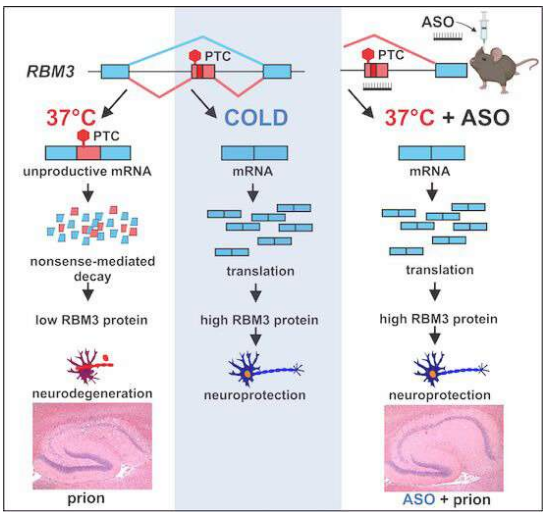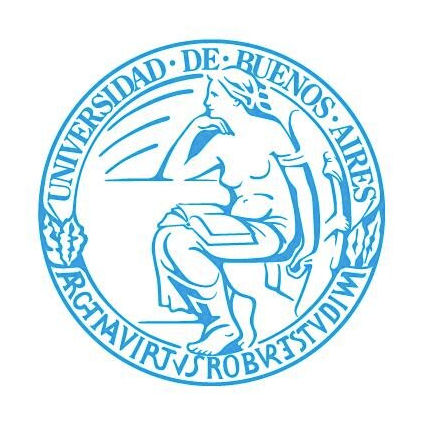预约演示
更新于:2025-05-07
RBM3
更新于:2025-05-07
基本信息
别名 IS1-RNPL、RBM3、RNA binding motif protein 3 + [3] |
简介 Cold-inducible mRNA binding protein that enhances global protein synthesis at both physiological and mild hypothermic temperatures. Reduces the relative abundance of microRNAs, when overexpressed. Enhances phosphorylation of translation initiation factors and active polysome formation (By similarity). |
关联
4
项与 RBM3 相关的药物作用机制 DNMT1抑制剂 [+6] |
最高研发阶段批准上市 |
首次获批国家/地区- |
首次获批日期1800-01-20 |
靶点 |
作用机制 RBM3 inhibitors |
在研机构 |
非在研适应症- |
最高研发阶段临床前 |
首次获批国家/地区- |
首次获批日期1800-01-20 |
WO2023117965
专利挖掘靶点 |
作用机制- |
在研适应症 |
非在研适应症- |
最高研发阶段药物发现 |
首次获批国家/地区- |
首次获批日期1800-01-20 |
655
项与 RBM3 相关的临床试验CTRI/2024/11/076875
A Single Center, Randomized, Double blind, Placebo Controlled Pilot Study to Evaluate the Efficacy, Safety and Tolerability of Turmeric Lemonade Energy Drink (Bioactive Curcumin Plus Green Tea Plus Ginger Plus Lemon Plus Lime) manufactured by Golden Tiger Life Corp in the Treatment of Patients with Moderate Osteoarthritis of Knee. - Nil
开始日期2025-11-06 |
申办/合作机构 |
NCT06932848
The Therapeutic Effect of Curcumin in Nanogels Compared to 0.1% Fluocinolone Acetonide Oral Paste in the Management of Atrophic-Erosive Oral Lichen Planus
This randomized, double-blind clinical trial evaluates the therapeutic effects of curcumin in nanogels compared to 0.1% fluocinolone acetonide oral paste in the management of atrophic-erosive oral lichen planus (OLP). The study aims to determine whether curcumin nanogels, a natural treatment with enhanced bioavailability, are as effective and better tolerated than standard corticosteroid therapy.
开始日期2025-06-01 |
申办/合作机构 |
NCT05947513
Feasibility, Safety, and Efficacy of Concomitant Curcumin in Patients Undergoing Palliative Radiotherapy for FIGO Stage IIIB-IVA Cervical Cancer: An Open-label Pilot Trial
The goal of this clinical trial is to test curcumin as an adjunct treatment in patients with cervical cancer receiving standard-of-care palliative radiation. The main questions it aims to answer are:
1. Is adding curcumin to standard-of-care palliative radiotherapy of cervical cancer patients feasible? Is conducting this study feasible?
2. Does adding curcumin to standard-of-care palliative radiotherapy of cervical cancer patients improve therapeutic responses?
3. Is adding curcumin to standard-of-care palliative radiotherapy of cervical cancer patients safe?
4. How much curcumin is absorbed into the body and how long will it stay in the body?
Participants will:
i. Take 250 mg curcumin capsules four times per day for 4-6 weeks in addition to the prescribed palliative radiotherapy.
ii. Provide blood and urine samples for laboratory tests. iii. Provide blood samples to measure curcumin levels in their body. iv. Obtain CT-scan to measure their tumor response. v. Complete questioners to measure improvements to their quality of life, if any.
1. Is adding curcumin to standard-of-care palliative radiotherapy of cervical cancer patients feasible? Is conducting this study feasible?
2. Does adding curcumin to standard-of-care palliative radiotherapy of cervical cancer patients improve therapeutic responses?
3. Is adding curcumin to standard-of-care palliative radiotherapy of cervical cancer patients safe?
4. How much curcumin is absorbed into the body and how long will it stay in the body?
Participants will:
i. Take 250 mg curcumin capsules four times per day for 4-6 weeks in addition to the prescribed palliative radiotherapy.
ii. Provide blood and urine samples for laboratory tests. iii. Provide blood samples to measure curcumin levels in their body. iv. Obtain CT-scan to measure their tumor response. v. Complete questioners to measure improvements to their quality of life, if any.
开始日期2025-04-10 |
申办/合作机构 |
100 项与 RBM3 相关的临床结果
登录后查看更多信息
100 项与 RBM3 相关的转化医学
登录后查看更多信息
0 项与 RBM3 相关的专利(医药)
登录后查看更多信息
249
项与 RBM3 相关的文献(医药)2025-04-01·Neurochemical Research
Therapeutic Hypothermia Increases the Expression of RNA-binding Protein Motif 3 and Attenuates Cognitive Deficits Following Cardiac Arrest in Rats
Article
作者: Guo, Min ; Qian, Bin ; Chen, Li-Hui ; Duan, Man-Lin ; Zeng, Yang ; Cheng, Hui-Xian ; Liu, Qing-Zhen ; Yao, Fen ; Ren, Li-Wen ; Cai, Shen-Quan ; Li, Feng ; Hui, Kang-Li
2025-02-01·Experimental Eye Research
Oxygen-dependent alternative mRNA splicing and a cone-specific motor protein revealed by single-cell RNA sequencing in hypoxic retinas
Article
作者: Samardzija, Marijana ; Grimm, Christian ; Nötzli, Sarah ; Ebner, Lynn J A ; Wögenstein, Gabriele M ; Karademir, Duygu
2025-01-01·International Immunopharmacology
Comparative study of transcriptomic alterations in sepsis-induced acute liver injury: Deciphering the role of alternative splicing in mouse models
Article
作者: Tong, Nana ; Tuerxun, Muzaipaier ; Peng, Hu ; Kadier, Aimaitijiang ; Aisha, Aisikaer ; Zhuang, Yugang ; Fang, Yi ; Liu, Dan ; Chen, Huaguo ; Jiang, Jinxia ; Jia, Shaohua ; Nie, Ke ; Chen, Yuanzhuo ; Sun, Mingming
3
项与 RBM3 相关的新闻(医药)2025-02-10
·药智网
1月23日,艾伯维宣布以超16亿美元与Neomorph达成合作,就肿瘤和免疫学的多个靶点开发新型分子胶蛋白降解剂。这笔交易,让分子胶再次站在了全球的聚光灯下。
凭借独特的作用机制和广阔的应用前景,分子胶成为了MNC巨头必争的下一个“金矿”,包括诺诚健华、恒瑞医药、正大天晴等中国药企也入局了这一赛道。
分子胶赛道为何如此火热?能为中国药企带来哪些新机会?
为何爆火?
分子胶赛道的爆火,从MNC巨头的频频大动作便可窥见一斑。
Neomorph作为分子胶领域的明星企业,此次牵手艾伯维,已经不是第一次和MNC巨头达成合作。
早在2024年2月,Neomorph与诺和诺德达成潜在交易总额超14亿美元的合作,开发用于心脏代谢和罕见疾病的新型分子胶降解剂;同年10月,Neomorph又与Biogen(渤健)达成潜在总额14.5亿美元的合作,共同开发用于治疗阿尔茨海默病、罕见病和免疫相关疾病的分子胶降解剂。
由上述合作可见,分子胶降解剂的临床应用广泛、覆盖众多疾病领域,市场潜力巨大。更重要的是,上述3项交易还只是近几年分子胶领域交易的冰山一角。
据不完全统计,自2023年以来,分子胶领域已产生超过10笔交易,总交易金额超过140亿美元,合作方不乏默沙东、罗氏、百时美施贵宝(BMS)、武田制药等MNC巨头。
值得一提的是,BMS在2019年豪掷740亿美元收购血液巨头Celgene(新基制药),囊括了分子胶降解剂Revlimid(来那度胺)、Pomalyst(泊马度胺)等产品管线。其中,来那度胺是分子胶领域的“药王”,2005-2023年累计销售额高达近900亿美元;泊马度胺的年销售额保持在30亿美元左右。
尽管目前已获FDA批准上市的分子胶降解剂仅有寥寥几款,但上述两款度胺类药物强劲的销售表现,充分验证了分子胶赛道是必争的“金矿”。
图片来源:西南证券研报
当然,从更深层次看,赛道的爆火离不开分子胶独特的机制和治疗优势。
与PROTAC(靶向蛋白降解嵌合体)一样,分子胶也属于蛋白降解剂的技术路线之一。尽管两者作用机制类似,但结构和药学性质存在较大差异。
PROTAC在构造上与ADC药物有一定的相似之处,也可分为三部分,即:POI配体连接靶蛋白,通过linker与E3连接酶配体连接,通过诱导E3连接酶和靶蛋白连接,泛素化靶蛋白进而将靶蛋白降解。
不过,由于PROTAC分子量较大,难以符合类药五原则,通过提高生物利用度实现口服给药,存在较高的技术挑战。
对比之下,分子胶是通过改变E3连接酶和目标蛋白之间的接触面,从而促进二者结合,进而导致蛋白降解,具有分子量更小、化学机构更简单、空间干扰少、成药性更好等特点,且能够作用于没有小分子结合口袋的不可成药靶点,比如IKZF1/3。
图片来源:国金证券研报
此外,由于分子胶分子量更小,具备更好的生物利用度,相较PROTAC还较容易穿透血脑屏障,有利于治疗存在巨大临床未满足需求的中枢神经系统疾病。
此前,分子胶的布局主要集中在IKZF1/3靶点上,治疗多发性骨髓瘤、非霍奇金淋巴瘤等血液肿瘤。目前,全球药企正在不断拓展分子胶的应用范围,靶点方面在原有基础上新增了GSPT1、RBM3、PRMT5等,疾病方面,实体瘤、自身免疫等大药领域逐渐进入了研究者的视野中。
基于上述种种因素,难怪MNC巨头纷纷选择重金押注拥有爆火基因的分子胶领域。
2023年以来分子胶领域的交易并购盘点
图源:公开数据整理,贝壳社
尚处于蓝海阶段
其实,分子胶赛道爆火除了上文中提到的天然优势外,其另一层原因还在于其设计难度大、技术壁垒高,行业正处于潜力无限的蓝海阶段。
较高的门槛从源头上限制了竞争者的数量,这对于掌握分子胶核心技术的药企而言,意味着可以在相对较长的时间内保持竞争优势,独享市场红利。
图片来源:公开数据整理
目前来看,全球已进入临床阶段的分子胶管线较少,布局企业多以MNC药企与Biotech企业为主,其中MNC企业中入局最早布局且研发进度最快的是BMS,其次是勃林格殷格翰、安进、卫材、默沙东等一众企业。
而有了来那度胺、泊马度胺的强劲销售表现在前,BMS的首要任务也正是继续捍卫其分子胶“龙头地位”,防止其他MNC入场分食。
图片来源:西南证券研报
据资料显示,BMS已有多款分子胶管线处于临床后期阶段,其中靶向IRAK1/3的Iberdomide、Mezigdomide和Golcadomide已处于III期临床,靶向GSPT1的CC-90009已处于I期临床。
Iberdomide(CC-220胶囊)
是新一代口服Cereblon(CRBN)E3连接酶调节剂,在体外可诱导转录因子Aiolos和Ikaros的降解,从而抑制骨髓瘤细胞的生长,目前正在开展对比来那度胺治疗新诊断的多发性骨髓瘤(MM)患者的III期临床试验。此外,Iberdomide还在开展用于系统性红斑狼疮的临床试验。
Mezigdomide(CC-92480)
也是新型口服Cereblon E3连接酶调节剂,特点在于:可克服骨髓瘤细胞系中的来那度胺和泊马度胺耐药性,并诱导强效免疫刺激活性。根据I/II期研究的初步结果显示,CC-92480联合硼替佐米和地塞米松治疗既往接受过2-4种治疗(包括来那度胺)的复发或难治性MM患者,具有良好的疗效和安全性。
Golcadomide(GOLCA)
是一种针对非霍奇金淋巴瘤(NHL)的潜在首类口服Cereblon E3连接酶调节剂,针对NHL疾病特点做了优化,使其主要分布在淋巴器官。目前,Golcadomide正在开展针对多种类型B细胞淋巴瘤的III期临床研究,此前Ⅰ/Ⅱ期结果显示针对B细胞淋巴瘤的ORR达到91.1%。
可以看到,BMS已获批上市的度胺类药物和在研管线,适应症基本都集中在MM领域。
这主要是由于度胺类分子胶的作用机制与MM生物学特性天然适配,而且临床验证疗效显著,惯性拓展适应症。度胺类分子胶通过降解与MM发病相关的转录因子,能够有效抑制肿瘤细胞的增殖,从而在治疗MM中显示出良好的疗效。
除了MM骨髓瘤,分子胶还有向其他疾病领域扩展的潜力,包括白血病、MDS等血液肿瘤,实体瘤、自身免疫、罕见病和中枢神经系统疾病等,拓展的逻辑包括靶点可迁移性、联合用药增效等。
图片来源:国金证券研报
至于其余布局分子胶产品的创新企业,卫材制药研发了全新的芳基磺酰胺分子胶降解剂E7820,正在开展用于治疗复发或难治性急性髓系白血病(AML)、骨髓增生异常综合征(MDS)或CMML患者的II期研究。另外,包括标新生物的GT929、诺诚健华的ICP-490、Monte Rosa Therapeutics的MRT-2359、安进的AMG 193、C4 Therapeutics的Cemsidomide也均进入了临床I/II期。
MRT-2359是用于治疗实体瘤的类IMiD的GSPT1降解剂,针对适应症包括非小细胞肺癌、小细胞肺癌、任何原发部位的高级别神经内分泌癌等。目前,MRT-2359已确定推荐Ⅱ期剂量(0.5毫克/天,21天服用7天停药),并开展与前列腺癌、乳腺癌药物的联合治疗评估。
AMG 193是一款MTA协同的PRMT5抑制剂,正在开展针对MTAP缺失型实体瘤患者的I/II期临床试验,初步展现出良好的有效性和安全性。
在2025 JPM大会上,C4 Therapeutics公布了Cemsidomide的Ⅰ期临床数据:联合地塞米松治疗MM、单药治疗NHL,均展现出良好的疗效和安全性,有望成为同类最佳的IKZF1/3降解剂。
中国药企的机会
面对分子胶这个理论上的“金矿”,放任BMS独享红利显然不可能,众多竞争者中中国药企绝不可能错过。
不完全统计,国内涉及分子胶新药的企业覆盖了上市巨头和新锐Biotech,包括诺诚健华、恒瑞医药、正大天晴、万春医药、标新生物、康朴生物、杭州格博生物、杭州卫本药业、嘉越医药、医诺康、优济普世等等。
图片来源:国金证券研报
诺诚健华基于公司的分子胶平台研发的高效选择性IKZF1/3降解剂ICP-490,正在开展单一疗法或与其他疗法联用治疗多发性骨髓瘤(MM)、非霍奇金淋巴瘤(NHL)等血液肿瘤的临床试验。
相比于前几代免疫调节剂,ICP-490表现出优异的抗肿瘤活性,可以克服包括来那度胺的耐药性。此外,ICP-490通过增强ADCC活性,在临床前研究中与CD38单抗Darzalex(Daratumumab,达雷妥尤单抗)展现出了协同作用,为临床联合治疗提供了科学依据。
值得一提的是,Darzalex是强生旗下最畅销的药物,2024年销售额高达116.7亿美元,同比增长19.8%。Darzalex最早于2016年获FDA批准上市,用于联合来那度胺和地塞米松或联合硼替佐米和地塞米松治疗既往至少接受过一种治疗的MM患者。
图片来源:西南证券研报
恒瑞医药的HRS-3738(靶点CRBN-E3连接酶),正在开展单药/联合(含地塞米松方案)治疗MM和NHL的Ⅰ期临床试验。
据介绍,HRS-3738在来那度胺、泊马度胺等类似结构基础上增加侧链,增大与CRBN的结合表面以增加亲和力,同时较来那度胺、泊马度胺对IKZF1/IKZF3在降解速率和最大降解幅度上也大幅改善,有望克服因CRBN表达下调引起的来那度胺耐药。
正大天晴的TQB3820是一种新型的CRBN调节剂(沙利度胺类似物),也在开展用于MM和NHL的临床试验。
另外,已经进入临床阶段的国产分子胶管线,还包括标新生物的GT929和GT919、康朴生物的KPG-818和KPG-121、格博生物的GLB-001和GLB-002、分迪药业的FD-001、杭州卫本药业的WBC100。
目前,GT919和GT929均已获得中美临床批准,并在复发/难治血液瘤适应症中观察到了疗效,且安全可控;GLB-001是国内首款进入临床开发阶段的CK1α分子胶蛋白降解剂,正在开展治疗髓系恶性肿瘤的I期临床研究,GLB-002针对的适应症为复发或难治性NHL。
FD-001与BMS的CC90009等单独降解GSPT1的分子胶不同,除主要降解GSPT1,后续研究证明其也降解IKZF1/3,双靶点的降解结合了对肿瘤细胞的有效杀灭和对免疫系统的调节作用,有望成为同类最优的药物分子,可产生更好的疗效和更少的潜在毒副作用。FD-001拟开发适应症,包括AML、MM和NHL等。
值得一提的是,万春医药子公司SEED Therapeutics在去年8月与卫材制药达成了一项15亿美元的分子胶降解剂协议,旨在开发针对多种未公开的神经退行性疾病和肿瘤学靶点的新型分子胶降解剂。Seed是一家专注于利用分子胶技术攻克“不可成药”靶点的创新公司,计划于2025年推进“同类最佳”口服RBM39降解剂至Ⅰ期临床测试,针对癌症适应症。
结语
分子胶作为蛋白降解剂领域的一颗新星,其广阔的应用前景和巨大的市场潜力不容小觑。分子胶赛道的兴起,为中国药企提供了与国际巨头同台竞技的舞台。
由于分子胶赛道尚处于蓝海阶段,技术壁垒高、竞争相对较小,并从肿瘤向更广阔疾病版图渗透,为具备快速跟进能力的中国药企提供了弯道超车的战略窗口。
未来随着临床数据的不断读出,一些具有潜力的国产分子胶管线有望脱颖而出,为中国药企在全球市场赢得更多的话语权。
友情推荐:医药行业深度技术内容,点击“博药”查看详情~
来源 | 博药(药智网获取授权转载)
撰稿 | 博药内容中心
责任编辑 | 八角
声明:本文系药智网转载内容,图片、文字版权归原作者所有,转载目的在于传递更多信息,并不代表本平台观点。如涉及作品内容、版权和其它问题,请在本平台留言,我们将在第一时间删除。
合作、投稿 | 马老师 18323856316(同微信)
阅读原文,是受欢迎的文章哦
抗体药物偶联物蛋白降解靶向嵌合体并购引进/卖出
2023-04-10
·生物谷
来自柏林自由大学等机构的科学家们通过研究利用一种新型的基因疗法成功增加了小鼠大脑中所谓的“冷休克蛋白”(cold shock protein)的水平,并能保护其抵御朊病毒病所带来的潜在破坏性影响。
如今,神经退行性疾病在老年人群中越来越普遍,但目前尚无相应的治疗方法;近日,一篇发表在国际杂志EMBO Molecular Medicine上题为“ASO targeting RBM3 temperature‐controlled poison exon splicing prevents neurodegeneration in vivo”的研究报告中,来自柏林自由大学等机构的科学家们通过研究利用一种新型的基因疗法成功增加了小鼠大脑中所谓的“冷休克蛋白”(cold shock protein)的水平,并能保护其抵御朊病毒病所带来的潜在破坏性影响。这一研究发现或许是研究人员利用冷却大脑的保护性效应来治疗急性大脑损伤甚至是预防诸如阿尔兹海默病等人类痴呆症迈出的重要一步。
当机体大幅降温时就会增加名为RBM3的冷休克蛋白的水平,这种现象首次是在冬眠动物机体中观察到的;科学家们认为,在冬眠期间,这种蛋白能帮助保护大脑免于损伤并促使其继续形成新的神经元连接。早在2015年,研究者Giovanna Mallucci教授等人就通过对小鼠进行研究后发现,RBM3能保护大脑抵御与错误折叠蛋白积累相关的损伤,蛋白质的错误折叠或许会导致多种形式痴呆症的发生,比如阿尔兹海默病和帕金森疾病以及诸如克雅二氏症(CJD)等朊病毒病。
诱导性低温用于在重症监护室对患者进行治疗,包括新生儿和创伤性脑损伤患者,即让病人处于昏迷状态,这样其大脑就能被冷却从而防止损伤发生,但也会伴随出现其它风险,比如血液凝固和肺炎等,那么是否能利用冷休克蛋白来治疗病人而不必冷却机体,从而就能为急性脑损伤患者提供更为安全的疗法,或能保护大脑抵御痴呆症呢?这项研究中,研究人员研究了是否名为反义寡核苷酸(ASOs,antisense oligonucleotides)的基因疗法形式能增加小鼠大脑中冷休克蛋白的水平从而保护其大脑免于损伤。
研究人员分析了能编码冷休克蛋白产生的特殊基因,结果发现,其包含了一种在正常情况下能阻断其表达的关键元素,利用ASO移除或调低该元件就会使得RBM3的产生得到持久性的提升。为了测试是否这种方法能保护大脑免于损伤,研究人员利用朊病毒感染的小鼠进行研究,其中一些小鼠在3周后被注射了单一剂量的ASO,而其它小鼠则接受了对照疗法进行治疗。在注射朊病毒12周后,接受对照疗法的小鼠患上了朊病毒病,且表现出了海马体中神经元的广泛缺失,海马体是大脑中负责记忆的关键区域。而接受ASO治疗的小鼠的情况则非常不同,当其它小鼠屈服于朊病毒病的同时,接受ASO治疗的小鼠机体中RBM3的水平是其它小鼠的两倍,8只接受ASO治疗的小鼠中有7只小鼠都表现为海马体中神经元的广泛保护。
通过增强机体大脑中冷休克蛋白的水平或有望治疗一系列人类神经退行性疾病。
图片来源:EMBO Molecular Medicine (2023). DOI:10.15252/emmm.202217157
研究者Giovanna Mallucci教授说道,从本质上来讲,冷休克蛋白能促使大脑自我保护,在这种情况下就能抵御朊病毒病期间对大脑中神经细胞的损伤;而值得注意的是,本文研究结果表明,仅仅单一注射ASO或许就足以为这些小鼠提供长效的保护力,并预防不可避免的神经退行性疾病的发生和发展。这种方法或许能为保护机体抵御诸如阿尔兹海默病和帕金森疾病等神经退行性疾病提供新的希望,对于这些疾病而言,目前研究人员并没有可靠的预防性疗法。
由于本文研究是在小鼠机体中进行的,所以距离在人类机体中进行相关的试验还需要很长一段路要走,但如果研究人员能安全利用ASOs来增强人类机体中冷休克蛋白的产生,或许就有望帮助预防人类痴呆症的发生;如今研究人员也看到了ASOs的确能成功用于治疗脊髓性肌肉萎缩症(spinal muscular atrophy),而且其最近还被授权用于治疗人类的运动神经元疾病。如果这些研究发现能在人类机体中得到复制的话,这一方法或许对于治疗人类神经退行性疾病以外的其它疾病也具有重大意义,包括在心脏手术中通过保护大脑而引起的新生儿缺氧所致急性脑损伤、中风以及成年人的头部损伤,否则将会通过治疗性低温来对这些病症进行治疗。
综上,本文在小鼠研究中所得到的可喜成果或许支持了这样一种可能性,即RBM3所诱导的ASO或许可能在从急性脑损伤到阿尔兹海默病等一系列疾病患者机体中提供一定的神经保护作用。(生物谷Bioon.com)
原始出处:
Marco Preußner,Heather L Smith,Daniel Hughes, et al. ASO targeting RBM3 temperature‐controlled poison exon splicing prevents neurodegeneration in vivo, EMBO Molecular Medicine (2023). DOI: 10.15252/emmm.202217157

基因疗法寡核苷酸临床研究
2023-04-07
·生物谷
如今,神经退行性疾病在老年人群中越来越普遍,但目前尚无相应的治疗方法;近日,一篇发表在国际杂志EMBO Molecular Medicine上题为“ASO targeting RBM3 temperature‐controlled poison exon splicing prevents neurodegeneration in vivo”的研究报告中,来自柏林自由大学等机构的科学家们通过研究利用一种新型的基因疗法成功增加了小鼠大脑中所谓的“冷休克蛋白”(cold shock protein)的水平,并能保护其抵御朊病毒病所带来的潜在破坏性影响。这一研究发现或许是研究人员利用冷却大脑的保护性效应来治疗急性大脑损伤甚至是预防诸如阿尔兹海默病等人类痴呆症迈出的重要一步。当机体大幅降温时就会增加名为RBM3的冷休克蛋白的水平,这种现象首次是在冬眠动物中观察到的;科学家们认为,在冬眠期间,这种蛋白能帮助保护大脑免于损伤并促使其继续形成新的神经元连接。早在2015年,研究者Giovanna Mallucci教授等人就通过对小鼠进行研究后发现,RBM3能保护大脑抵御与错误折叠蛋白积累相关的损伤,蛋白质的错误折叠或许会导致多种形式痴呆症的发生,比如阿尔兹海默病和帕金森疾病以及诸如克雅二氏症(CJD)等朊病毒病。诱导性低温用于在重症监护室对患者进行治疗,包括新生儿和创伤性脑损伤患者,即让病人处于昏迷状态,这样其大脑就能被冷却从而防止损伤发生,但也会伴随出现其它风险,比如血液凝固和肺炎等,那么是否能利用冷休克蛋白来治疗病人而不必冷却机体,从而就能为急性脑损伤患者提供更为安全的疗法,或能保护大脑抵御痴呆症呢?这项研究中,研究人员研究了名为反义寡核苷酸(ASOs,antisense oligonucleotides)的基因疗法形式是否能增加小鼠大脑中冷休克蛋白的水平从而保护其大脑免于损伤。研究人员分析了能编码冷休克蛋白产生的特殊基因,结果发现,其包含了一种在正常情况下能阻断其表达的关键元素,利用ASO移除或调低该元件就会使得RBM3的产生得到持久性的提升。为了测试是否这种方法能保护大脑免于损伤,研究人员利用朊病毒感染的小鼠进行研究,其中一些小鼠在3周后被注射了单一剂量的ASO,而其它小鼠则接受了对照疗法进行治疗。在注射朊病毒12周后,接受对照疗法的小鼠患上了朊病毒病,且表现出了海马体中神经元的广泛缺失,海马体是大脑中负责记忆的关键区域。而接受ASO治疗的小鼠的情况则非常不同,当其它小鼠屈服于朊病毒病的同时,接受ASO治疗的小鼠机体中RBM3的水平是其它小鼠的两倍,8只接受ASO治疗的小鼠中有7只小鼠都表现为海马体中神经元的广泛保护。通过增强机体大脑中冷休克蛋白的水平或有望治疗一系列人类神经退行性疾病。图片来源:EMBO Molecular Medicine (2023). DOI:10.15252/emmm.202217157研究者Giovanna Mallucci教授说道,从本质上来讲,冷休克蛋白能促使大脑自我保护,在这种情况下就能抵御朊病毒病期间对大脑中神经细胞的损伤;而值得注意的是,本文研究结果表明,仅仅单一注射ASO或许就足以为这些小鼠提供长效的保护力,并预防不可避免的神经退行性疾病的发生和发展。这种方法或许能为保护机体抵御诸如阿尔兹海默病和帕金森疾病等神经退行性疾病提供新的希望,对于这些疾病而言,目前研究人员并没有可靠的预防性疗法。由于本文研究是在小鼠机体中进行的,所以距离在人类中进行相关的试验还需要很长一段路要走,但如果研究人员能安全利用ASOs来增强人类机体中冷休克蛋白的产生,或许就有望帮助预防人类痴呆症的发生;如今研究人员也看到了ASOs的确能成功用于治疗脊髓性肌肉萎缩症(spinal muscular atrophy),而且其最近还被授权用于治疗人类的运动神经元疾病。如果这些研究发现能在人类中得到复制的话,这一方法或许对于治疗人类神经退行性疾病以外的其它疾病也具有重大意义,包括在心脏手术中通过保护大脑而引起的新生儿缺氧所致急性脑损伤、中风以及成年人的头部损伤,否则将会通过治疗性低温来对这些病症进行治疗。综上,本文在小鼠研究中所得到的可喜成果或许支持了这样一种可能性,即RBM3所诱导的ASO或许可能在从急性脑损伤到阿尔兹海默病等一系列疾病患者机体中提供一定的神经保护作用。原始出处:Marco Preußner,Heather L Smith,Daniel Hughes, et al. ASO targeting RBM3 temperature‐controlled poison exon splicing prevents neurodegeneration in vivo, EMBO Molecular Medicine (2023). DOI: 10.15252/emmm.202217157
基因疗法寡核苷酸
分析
对领域进行一次全面的分析。
登录
或

生物医药百科问答
全新生物医药AI Agent 覆盖科研全链路,让突破性发现快人一步
立即开始免费试用!
智慧芽新药情报库是智慧芽专为生命科学人士构建的基于AI的创新药情报平台,助您全方位提升您的研发与决策效率。
立即开始数据试用!
智慧芽新药库数据也通过智慧芽数据服务平台,以API或者数据包形式对外开放,助您更加充分利用智慧芽新药情报信息。
生物序列数据库
生物药研发创新
免费使用
化学结构数据库
小分子化药研发创新
免费使用






